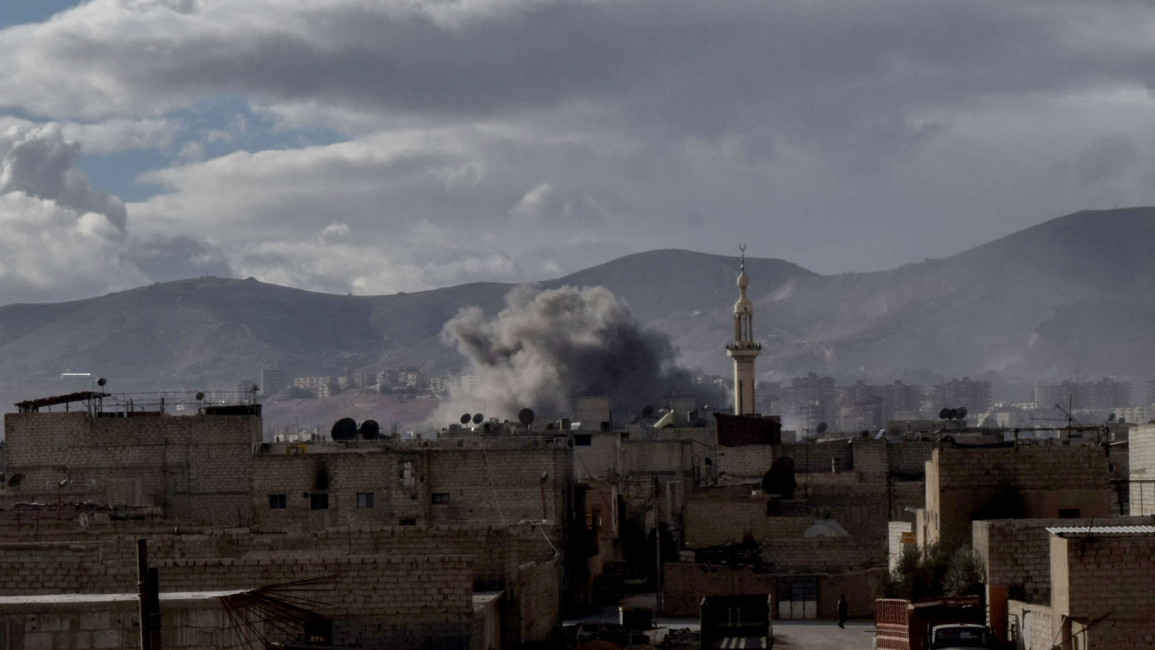Syrian regime renews bombardment in Eastern Ghouta despite Russia's 'humanitarian pause'
Moscow's truce was meant to pause the bloody fighting between 9:00am (0700 GMT) and 2:00pm (1100 GMT) on Tuesday.
But a rocket attack on Eastern Ghouta's main town of Douma reportedly killed a man and woman and damaged several buildings on tuesday, according to al-Araby al-Jadeed who also reported that regime forces were conducting heavy strikes on the town of Masraba.
Clashes have also broken out between regime troops and rebel factions in Harasta, that have reportedly seen at least 36 of Assad's fighters killed, according to al-Araby al-Jadeed.
The "humanitarian pause" was announced by Russia on Monday in a bid to stem the bloodshed in Syria's rebel-held enclave of Eastern Ghouta, where over 550 people have been killed by a relentless Russian-backed regime bombing and shelling campaign that has pounded the area for nine days.
Only sporadic rocket fire was reported overnight in Douma, with many hopeful for a viable humanitarian pause that would allow essential medical and food aid to the thousands of civilians trapped in the besieged enclave.
However many had been sceptical that such a ceasefire agreement was ever going to work.
Moscow intended the pause to provide a five-hour window for some of the estimated 400,000 people living in the area to evacuate, using safe passages.
A spokesman for the UN's Office for the Coordination of Humanitarian Affairs in Geneva said it was not yet clear when aid could be sent in.
"We cannot send people on a convoy in any area on the promises of whomever. We have to see a ceasefire actually taking place on the ground" before aid trucks can be deployed, Jens Laerke told AFP.
The "pause" falls short of the month-long ceasefire the United Nations had supported in a bid to stop one of the bloodiest assaults in Syria's seven-year-old conflict.
"Five hours is better than no hours, but we would like to see an end to all hostilities extended by 30 days, as stipulated by the Security Council," UN spokesman Stephane Dujarric said.
Agencies contributed to this report



